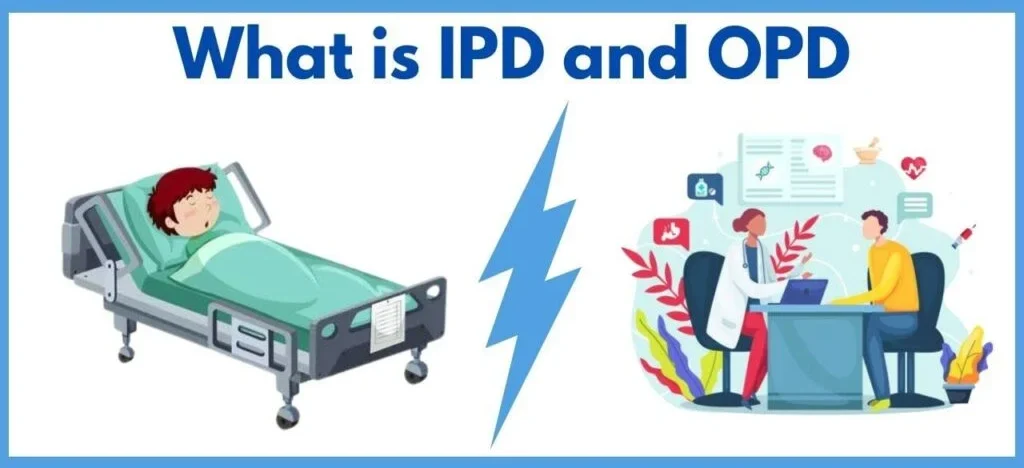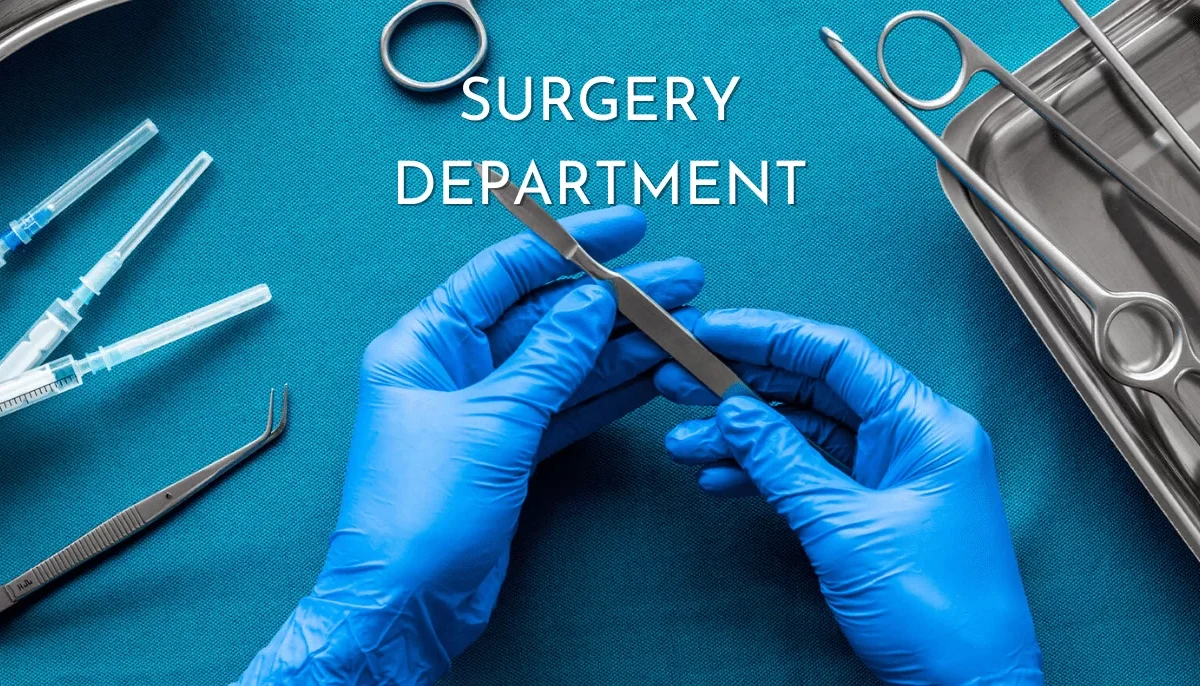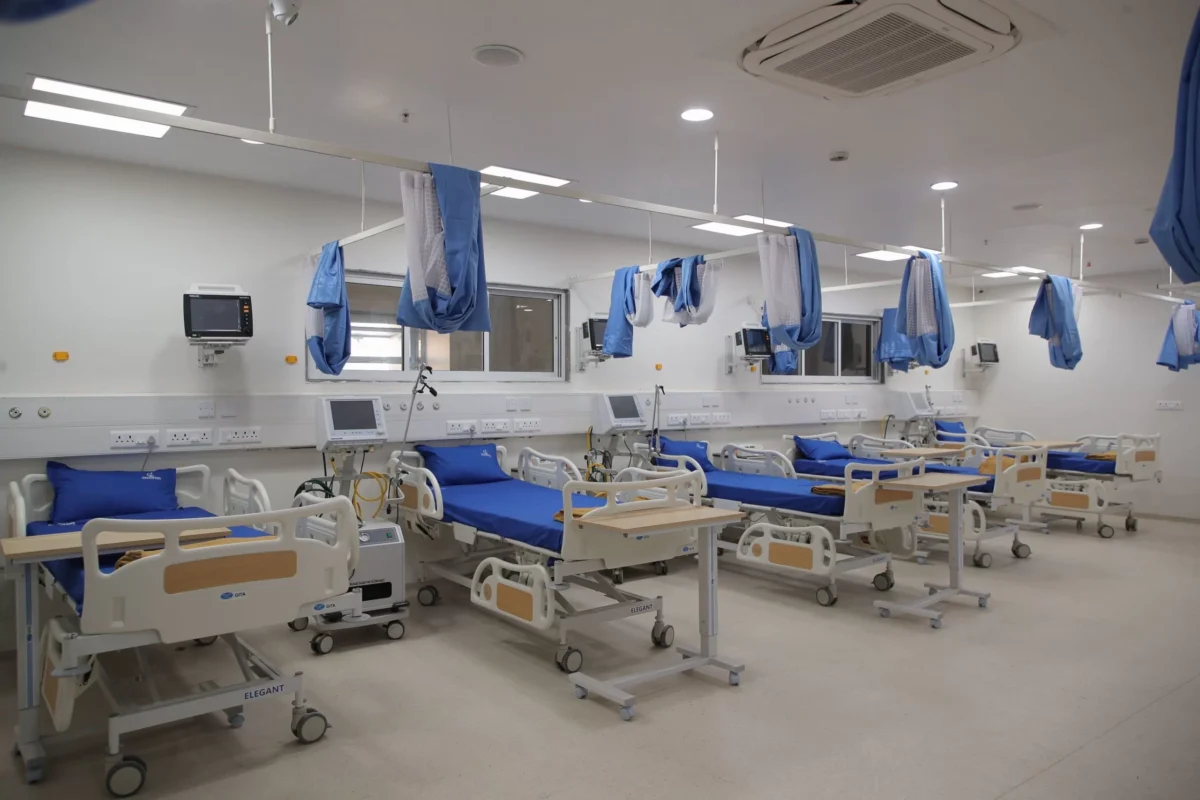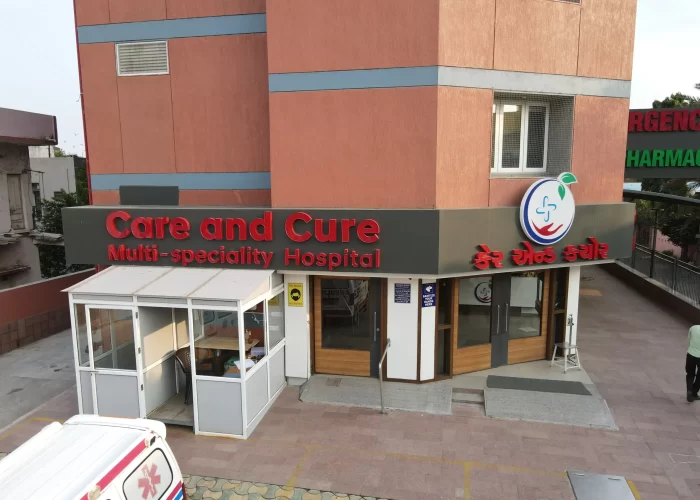Looking for the best OPD and IPD services in Ahmedabad? Whether it is a routine check-up or a critical admission getting the right medical care matters. Care and Cure Hospital offers expert doctors, modern facilities, and a patient-first approach that makes you feel cared for from the moment you walk in. With their trusted outpatient and inpatient departments, you’re never alone in your healthcare journey. Let’s explore why this hospital is one of the top choices for complete, compassionate care.
What is OPD?
OPD stands for Outpatient Department. It’s the part of a hospital where patients go to get consultations, checkups, and basic treatments—without being admitted to the hospital.
In simple words, if you’re visiting a doctor for a health issue and you don’t need to stay overnight, that visit happens in the OPD.
What is IPD?
IPD stands for Inpatient Department. It’s the part of a hospital where patients are admitted for treatment that requires staying in the hospital overnight or longer.
If your condition is serious, needs surgery, or requires close monitoring and regular medical care, you’ll be admitted to the IPD.
What Are OPD and IPD Services? Let’s Break This Down
Before we dive deeper, let’s clear the basics because, honestly, these terms can sound a little too ‘medical’ if you are hearing them for the first time.
OPD (Outpatient Department)
OPD stands for Outpatient Department. It is the part of a hospital where you visit for consultations, check-ups, follow-ups, diagnostics, and even minor procedures without needing to stay overnight. Think of it as your entry point to healthcare.
For example, if you are dealing with a persistent cough, want a routine blood test, or need to see a dermatologist for a rash that is OPD.
IPD (Inpatient Department)
IPD is where you go when your treatment requires hospitalization. This means your condition needs monitoring, observation, or surgery so you’re admitted and cared for by doctors and nurses around the clock.
If your doctor advises a knee replacement or if you are recovering from a heart condition, IPD is where healing happens.
Why Best OPD and IPD Services in Ahmedabad Are Crucial in Modern Healthcare
Today is medical care is all about convenience, speed, and trust. That is why hospitals offering both Best OPD and IPD Services in Ahmedabad under one roof make a big difference.
- For families: Having OPD services saves you time with fast check-ups and tests.
- For seniors: IPD ensures comfort and 24/7 expert supervision.
- For emergencies: Quick transition from Best OPD and IPD Services in Ahmedabad can be life-saving.
In short, a hospital that excels in both can handle everything from a minor fever to major surgeries, seamlessly.
Integrated Care Approach – Smooth Transition from Best OPD and IPD Services in Ahmedabad
One of the most underrated yet important aspects of a hospital is how smoothly a patient can move from Best OPD and IPD Services in Ahmedabad if needed. At many hospitals, patients are bounced between departments, leading to delays, confusion, and stress especially during emergencies.
At Care and Cure Hospital, the system is designed for integrated care. Here’s what that means:
-
If a doctor in OPD finds that a patient needs to be admitted, the IPD admission process is initiated immediately without running from counter to counter.
-
Diagnostic results, prescriptions, and reports are shared digitally across departments so nothing gets lost.
-
The same doctor or team often follows the patient from OPD to IPD, ensuring continuity in care.
This streamlined process reduces patient anxiety and improves outcomes, especially during surgeries or complex treatments.
Best OPD and IPD Services in Ahmedabad – Why It Matters More Than Ever
Ahmedabad is home to many healthcare centers, but choosing the right one makes all the difference. You want:
- Skilled doctors
- Updated infrastructure
- Short waiting times
- Clean rooms
- Staff that actually listens
And here’s where Care and Cure Hospital rises above the rest.
Care and Cure Hospital – Top 1 for Best OPD and IPD Services in Ahmedabad
When we talk about “trusted care anytime you need it”, we mean it. Let’s look at how Care and Cure Hospital excels in both OPD and IPD services, making it a top choice for families in Ahmedabad.
Modern OPD Facilities That Keep You Moving
Nobody likes waiting rooms. At Care and Cure Hospital, the OPD services are built to be efficient and stress-free.
Highlights of Their OPD Services:
- Fast Appointments: Online and walk-in options
- Specialist Consultations: General medicine, ENT, orthopedics, gynecology, cardiology, and more
- On-Site Diagnostics: X-ray, ECG, blood tests done the same day
- Electronic Records: No more carrying files everywhere
- Affordable Rates: Quality care that does not break your budget
Whether you need a second opinion or regular checkups, Care and Cure Hospital ensures a smooth experience.
IPD Services That Feel Like a Second Home
When you are admitted to a hospital, comfort, cleanliness, and care make all the difference.
What Makes Their IPD Services Stand Out:
- Spacious & Hygienic Rooms: From general wards to private rooms
- 24/7 Nursing Care: Polite, attentive, and always available
- Advanced ICU & Emergency Care: For critical conditions
- In-Room Meals & Attendant Beds: So family stays close
- Pre & Post-Surgery Care: Smooth recovery starts with expert care
You or your loved one should never feel “just another patient” and here, you don’t.
Expert Doctors Who Truly Listen
This one deserves its own section. Because great facilities mean little without great people.
At Care and Cure Hospital, doctors do not just diagnose. They talk, explain, and understand. It is healthcare with heart.
- Board-certified specialists
- Patient-first mindset
- Clear communication (no scary medical jargon)
- Respect for your time and concerns
Whether you’re consulting in OPD or admitted in IPD, the personal connection with doctors matters and you’ll feel it here.
Technology That Supports Healing
Another reason Care and Cure is considered the best OPD and IPD hospital in Ahmedabad is its use of cutting-edge technology:
- Digital X-rays & imaging
- Real-time monitoring equipment in ICU
- Automated pharmacy
- 24/7 ambulance tracking system
This means faster results, more accuracy, and quicker recovery. Sounds technical? It just means better outcomes for you.
Affordable Pricing and Transparent Billing
Let’s be honest hospital bills are scary. But not here.
At Care and Cure Hospital, you’ll find:
- Clear cost estimates before admission
- No surprise charges
- Multiple insurance tie-ups
- Payment options for families
Whether you are visiting OPD or admitted in IPD, the billing is upfront and honest, just the way it should be.
Emergency Services You Can Rely On
Life does not give warnings. That is why Care and Cure Hospital runs a 24×7 emergency care unit, equipped for everything from:
- Accidents
- Heart attacks
- Stroke management
- High fever or dehydration
- Sudden complications during pregnancy
A well-coordinated emergency team ensures zero delays, and smooth shift to IPD if needed.
Location & Accessibility
Located in Ahmedabad, the hospital is easy to reach by road and close to public transport. Plus, they have:
- Free parking
- Wheelchair access
- Friendly front desk support
So whether you’re an elderly patient or visiting from outside the city, the hospital is easy to access and welcoming to all.
Why Care and Cure Hospital Truly Stands Out
In case you are skimming, let’s quickly recap:
✅ Fast & friendly Best OPD and IPD Services in Ahmedabad
✅ Comfortable & clean rooms in Best OPD and IPD Services in Ahmedabad
✅ Expert doctors who listen
✅ Affordable pricing
✅ 24×7 emergency care
✅ Fully digital records & diagnostics
No wonder more and more people are calling Care and Cure Hospital the best OPD and IPD services in Ahmedabad hospital.
Patient Testimonials – Real Stories from Real People
Nothing speaks louder than the voices of patients who’ve experienced the care firsthand. At Care and Cure Hospital, many patients have shared heartfelt testimonials after receiving OPD consultations and IPD treatments.
Here are a few examples (names can be anonymized or real with permission):
-
“I visited the OPD for a severe skin allergy. The dermatologist not only explained everything clearly but also followed up until I fully recovered. I never felt rushed.” – Meena S.
-
“My father was admitted to the ICU for a cardiac issue. From emergency to IPD, everything was handled quickly and professionally. The staff even helped us with insurance paperwork.” – Rahul D.
-
“I came in for a routine OPD consultation, but they found early signs of an infection and admitted me for observation. I’m thankful they caught it early—it could’ve gotten worse.” – Firoz M.
These real-life stories help new patients feel confident that Care and Cure Hospital truly delivers on its promise of expert, compassionate care across both outpatient and inpatient departments.
Conclusion: Choose Trusted Healthcare, Choose Care and Cure Hospital
When it comes to your health, you deserve more than just treatment you deserve care that is timely, trustworthy, and built around you.
From quick OPD visits Best OPD and IPD Services in Ahmedabad to round-the-clock inpatient care, Care and Cure Hospital combines medical excellence with compassion. It is not just a hospital it is a place where healing begins.
So next time you or a loved one needs medical attention, do not just search “hospital near me.” Choose the top-rated, trusted name in Ahmedabad.
FAQs
1. What’s the difference between OPD and IPD services?
OPD (Outpatient Department) is for consultations, checkups, and diagnostics that do not need hospital admission. IPD (Inpatient Department) is for treatments or surgeries that require hospital stay, observation, or surgery. Both services are essential for complete healthcare.
2. Does Care and Cure Hospital offer specialist consultations in OPD?
Yes! Care and Cure Hospital offers a wide range of OPD consultations across specialties like cardiology, gynecology, ENT, orthopedics, general medicine, and more—all under one roof with minimal waiting time.
3. Is emergency admission available at Care and Cure Hospital?
Absolutely. The hospital has a fully equipped 24/7 emergency unit with trained staff, advanced ICU support, and immediate access to IPD services for quick treatment in serious cases.
4. Are Best OPD and IPD Services in Ahmedabad charges affordable at Care and Cure Hospital?
Yes, they are. The hospital follows transparent billing policies with affordable OPD consultation fees and reasonable IPD room rates. Insurance is accepted, and cost estimates are provided in advance.
5. Which hospital is Best OPD and IPD Services in Ahmedabad?
Care and Cure Hospital in Ahmedabad is widely regarded as one of the best hospitals for both OPD and IPD services. With expert doctors, modern diagnostic tools, clean inpatient rooms, and 24/7 emergency care, the hospital offers a complete healthcare experience. Whether you need a quick consultation or long-term treatment, Care and Cure Hospital ensures high-quality care that’s both accessible and affordable. It’s a trusted name for families seeking reliable outpatient and inpatient medical services in Ahmedabad.











